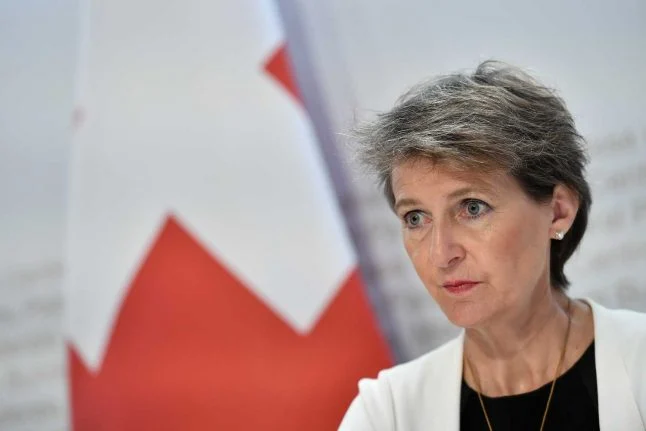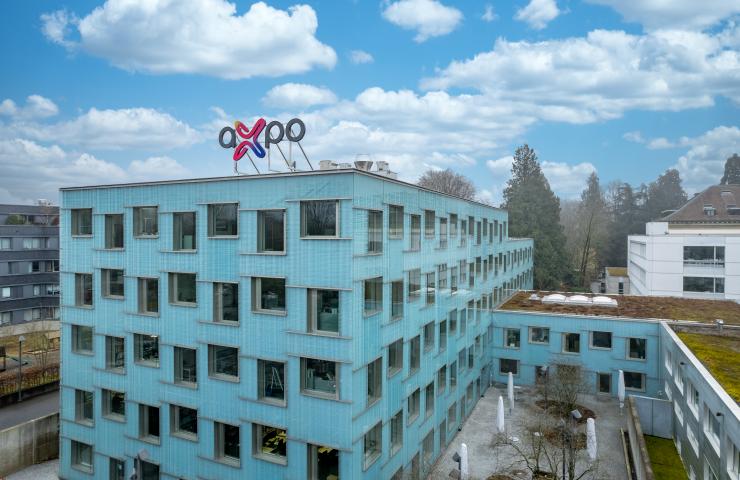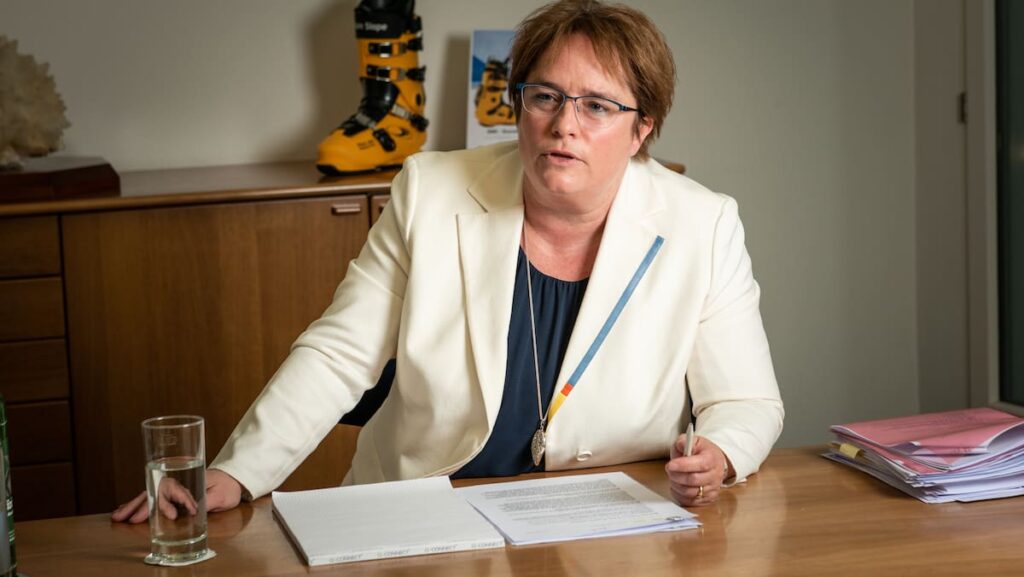الأثنين, سبتمبر 19th 2022

Switzerland’s Energy Minister Simonetta Sommaruga been the force behind the energy provider bailout package, which was approved earlier this month.
Members of Swiss parliament are decrying the government’s recent approval of a CHF 10 billion bailout package for local electricity providers – the hefty package comes days after Parliament also extended a CHF 4 billion credit line solely for energy provider Axpo.
Supporters of the bailout, like Energy Minister Simonetta Sommaruga and other Green Party members, say it is the right thing to do while electricity providers face unparalleled price irregularities in the coming months. Sommaruga said in a recent news conference that the government had to step in, so that a “wildfire” of surging prices did not consume energy providers this winter. (Read more: How will Switzerland fare in Europe’s ‘War on Energy’?)
Critics of the move, like members the Swiss People’s Party (SPP), say electricity companies did not do their homework and are already profiting nicely off higher electricity prices.
“The rescue package is not about supplying Switzerland,” SPP vice president Magdalena Martullo told local outlet بليك. Martullo went as far as saying the the federal government had allowed itself to be blackmailed by Axpo.
“The production and sale of electricity are now only a small part of the business for these groups – especially for Axpo,” she explained, adding “In March, Axpo had CHF 65 billion in speculative transactions. That’s almost our federal budget! In the meantime, the company’s own electricity production was already being sold abroad for years to come. Now Axpo’s speculative casino is almost on its knees and the federal government has to step in.”

The Swiss headquarters of Axpo Holding in Baden.
More money, more problems
Axpo Holding is Switzerland’s largest producer of renewable energy, accounting for more than half of the country’s renewable electricity from hydropower. In fact, Axpo has more than 5,000 megawatts (MW) of renewable energy capacity across Europe, including wind energy, biomass production, photovoltaics and hydropower.
One of the other largest Swiss energy providers, Alpiq, released a statement that it is not using any bailout money and “remains confident that it will not have to do so even if market conditions remain challenging.” Another leading electricity provider, BKW, said their books look strong and that it, too, “does not need a state credit line.”
Axpo says it has yet to cash in on the bailout, and that the credits are only to ensure “that if the situation deteriorates further, Axpo will be able to cover the security payments associated with the long-term electricity supply contracts for its customers and continue to make its important contribution to Swiss security of supply.” The company added that it “is doing everything in its power to avoid” using the money.
Which begs the question: Why even ask for a bailout in the first place?
According to Martullo, the bailout package – which was “cobbled together” in three days – fails to protect “the Swiss part of Axpo.” Instead, it buoys the company’s prospective investments.
“This is about uncovered futures transactions with traders at Axpo – just imagine! – speculated in the aggressive bonus mode!” she said, adding that what’s worse “Axpo can continue to speculate, and the federal government will pay.”
According to Axpo, the company pursued a conservative plan and “did not speculate on falling or rising prices, but agreed to fixed prices for electricity production from Swiss power plants for three years in advance.” Unfortunately, Axpo’s plan was “not designed for short-term price fluctuations” of up to 10 times.
“The current problem concerns liquidity, but not the profitability of the company,” Axpo says.

Magdelena Martullo is the SPP vice president and also Switzerland’s richest woman, as the majority shareholder of Ems Chemie Holding.
Is there a way out?
Martullo’s solution? Have the nine cantons that own the Swiss part of Axpo pay the bailout package.
“No bank could operate with as little capital as the large electricity companies. Nonetheless, no one checked or called for more prudent management. The cantons both narrowed their eyes and held out their hands,” Martullo said. She suggests that one billion francs should be a reasonable contribution for the cantons to bail out Axpo, need be.
Looking to the future, Martullo says these electricity providers should be responsible for helping Switzerland reach energy self-sufficiency. Small businesses and households rely on their cantons to maintain stable pricing. Should large consumers buy electricity off the open market, it is their responsibility to insure themselves.
“Companies that missed out can’t expect everyone else to make up for it. If a company or an industry is systemically important, the cantons have to support it, not the federal government,” Martullo said. (Read more: How Swiss businesses became the victims of the ‘Energy War.’)

The electricity the Kernkraftwerk plant makes a substantial contribution towards Switzerland’s energy supply.
The winter forecast
As for the winter hydropower reserves package Sommaruga recently announced, Martullo says it is expensive window-dressing that does not add any additional electricity for the country as it has “long since been sold abroad” under foreign contracts.
While electricity regulator Elcom’s head Werner Luginbühl says there is no truth to this, the organization for emergency power supply, Ostral, counters, according to Martullo.
“If there is a lack of gas and therefore electricity in Europe, then our water power will be needed to stabilize the European electricity grid,” she says. Martullo is advocating for energy exports to be reduced and nuclear power supplies amplified.
“Our nuclear power plants deliver ten times more” than the 100 large-scale power plants proposed to be built in the Alps under the government’s Energy Strategy 2050 plan, she says. The Energy Strategy 2050 plan calls for reducing CO 2 emissions to zero by replacing all fossil fuels through renewable energy sources such as solar, hydro and maintaining some, existing nuclear reactors.
For now, Swiss residents may be more focused on their next electricity bills – which are expected to increase by 27 percent, on average, in 2023 – and avoiding possible jail time for breaching new home heating restrictions.
يمكن مشاركة هذه المقالة وإعادة طباعتها مجاناً، شريطة أن تكون مرتبطة بشكل بارز بالمقالة الأصلية.
